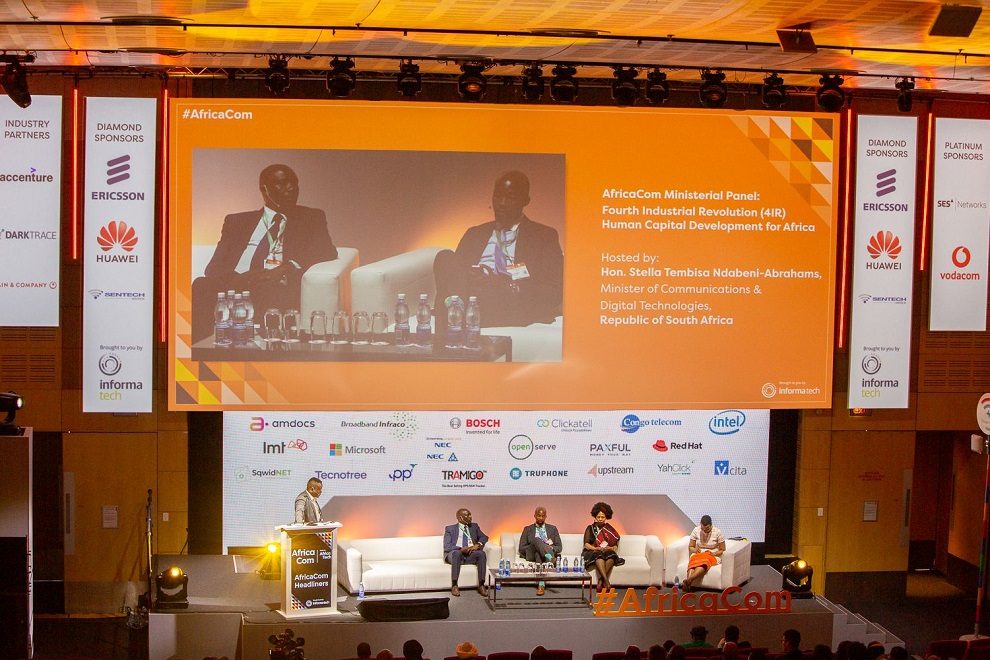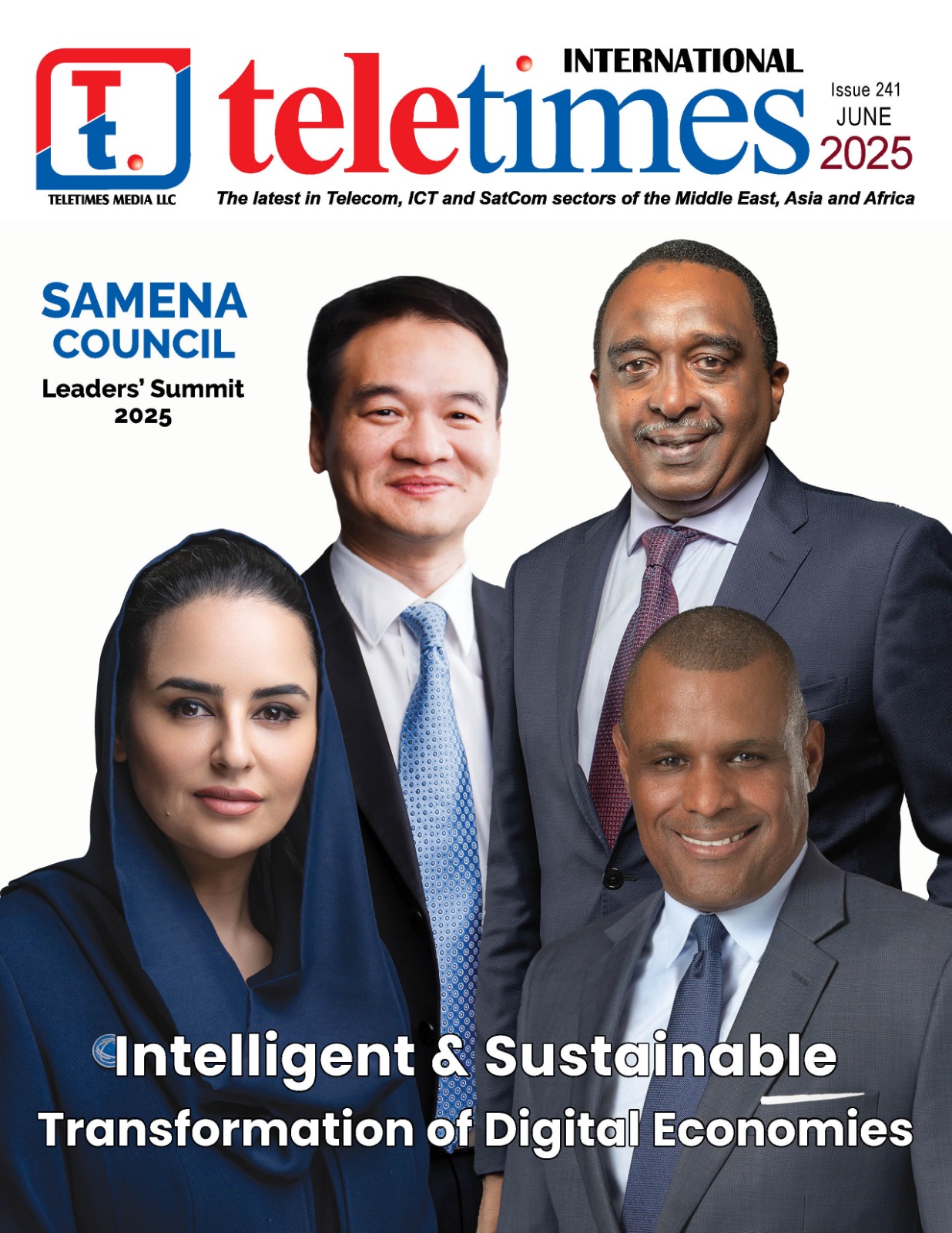The world’s most influential Africa-focused telecoms and tech event celebrates 25 years of connecting Africa’s technology and enterprise ecosystems to build a more efficient, inclusive digital continent
Returning to Cape Town, South Africa in November after a 2-year break during which it was hosted online, Africa Tech Festival will welcome 10,000+ exhibitors, delegates, and policy makers from all over the world in November 2022, to continue shaping the continent’s digital transformation.
The festival has broadened its remit with telecommunications continuing to represent a mainstay of the event. However, topics have branched out to include the full spectrum of technological advancements that are making a connected life across Africa and around the world a reality. In short, Africa Tech Festival unites telecoms, infrastructure, and policy to help leverage the disruptive power of technology and position Africa as a global 4IR leader that creates equitable, tech-enabled digital economies.
Of what to expect a quarter of a century on, James Williams, Director, Events | Connecting Africa | Informa Tech, shares that: “As we know, COVID-19 sparked a rapid adoption of technology and telecommunications across the world, with digital transformation and inclusivity across Africa being no exception.”
“We are excited to be back in person this year, as are our exhibitors and speakers who look to continue the advancement of the African continent as a connected digital powerhouse. The agendas for AfricaCom and AfricaTech thus reflect the optimism and opportunity that a connected continent can bring not only to its inhabitants, but the world at large.”
Africa Tech Festival has a well-deserved reputation for facilitating business, an array of developmental advancements and an enviable track-record in attracting key decision makers. As always, the event brings some of the industry’s leading luminaries together, with the likes of Funke Opeke, CEO at MainOne, Nika Naghavi, Executive Director of MFS, Kuseni Dlamini, Chairman of Massmart and Dr Olufunso Somorin, Regional Principal Officer – Climate Change & Green Growth Program at the African Development Bank.
Other speakers to enlighten delegates include Nic Rudnick the chief executive officer of Liquid Telecom, Ida Nganga, Regional Head at UNESCO Emerging Technologies for Development, ocelyne Muhutu-Remy, Managing Director, Sub-Saharan Africa at Spotify, Fargani Tambeayuk, Head of Connectivity Policy at Meta, Danielle Agress, Country Manager for Southern Africa & Global Connectivity Sector Co-Lead at the U.S. Trade and Development Agency, as well as Alderman Geordin Hill-Lewis, the Executive Mayor of Cape Town, the official host city of Africa Tech Festival.
Calling Africa’s future
Central to the conversation, will be discussions around the Future of Work, what that might look like and how Africa’s vast small to medium and micro enterprise (SMMEs) sector will shape it. African SMMEs make up around two thirds of the continent’s formally employed workforce, comprising 90% of the private sector, employing >80% of the workforce, and numbering >44 million.
With the youngest population in the world, (70% of sub-Saharan Africa is under 30), Africa looks to its SMMEs to grow sovereign economies, as well as the pan-African collective.
Seeking to empower SMMEs, Africa Tech Festival will focus content on helping the continent’s future rights holders deliver on their promise. Consequently, Africa Tech Festival will present a dedicated stage that looks at 4IR Talent & The Future of Work. Wednesday 9th November opens with a keynote that will address Maximizing the Potential of Africa’s Human Capital. A panel, that could unlock potential ideas and business endeavor’s for the next successful SMME, entitled Surviving Talent Shortage in a Changing World also supports a Fireside Chat: The Future Workforce – Learning and Development in the 4th Industrial Revolution, along with a panel: Youth Employment in Africa: Effective Strategies for Positive Outcomes.
Supporting the case to encourage the participation of more SMMEs in shaping Africa’s future and based on findings from their recent publication on economic development in Africa, Habiba Ben Barka, Chief, Africa Section, Division for Africa of the United Nations Conference on Trade and Development (UNCTAD), remarked: “The African private sector (especially SMMEs) are potential new actors that can enhance the complexity and sophistication of production and business processes in Africa and influence a paradigm shift in trade expansion and economic diversification on the continent.
“Empowering SMMEs with access to financial services and technology-enabling services particularly provides greater opportunities for value addition, market expansion and industrial upgrading in Africa.”
Access to capital for start-ups and expansion of SMMEs is always topical, and Africa Tech Festival’s AHUB: Scaling Start-Ups Stage will host pitch sessions as well as inspiring and motivating discussions including an opening keynote on Supporting Start-ups to Foster Innovation.
Rounding out some of the content aimed at sparking SMME involvement, the AfricaCom Centre Stage in the Connectivity Hall, will present a discussion entitled: Affordable Internet Access for All: Empowering Africa’s Connectivity Champions to Bridge the Digital Divide and a Fireside Chat discussing Mobile Financial Services: Leveraging the Power of Technology to Empower Economies.
Trading on tomorrow
To operate effectively, businesses need to take account of future operational needs such as data centres, cloud services and necessary cybersecurity. Business also needs the human capital with the requisite skills, all of which will be covered at this year’s event.
Critical to any sort of fast-track future is the connectivity required for Africa to truly own its digital transformation. Hampering efforts are still availability, affordability, relevance, and readiness. According to InformaTech’s 2022 ‘The State of Connectivity in Africa in 2022’ report, Africa has the lowest number of Internet connections (most of them mobile) at only 39.9%.
Lack of connectivity also has a negative effect on education, severely limiting the benefits and participation of young people in the rapidly enhancing global digital world.
5G, infrastructure and connectivity will therefore feature strongly at Africa Tech Festival, as too, dedicated tracks around EdTech.
Kicking off the discussion around 5G under the Connecting Africa’s Next Billion stream, is a Keynote Panel: Accelerating the Vision of a 5G-Enabled Africa. This session will include unpacking the argument that 5G could eventually be a cheaper way to deliver voice and connectivity.
The panel discussion Connectivity in Focus: 4G, 5G, and Africa’s Network Migration, will discuss the limitations of 5G adoption (predominantly high deployment costs, consumer affordability and reticence), as well as look at how African telcos are integrating unused 4G capacity as part of near-term strategies while eyeing the innovation-unlocking value that 5G will surely bring across industry verticals and consumer markets. A panel on Unpacking 5G Progress and Prospects in North Africa (Wednesday, 9 November 2022), will put forth the argument that 4G performance is key for the future of 5G.
Highlights in terms of EdTech include sessions such as a keynote panel titled Youth Empowered – Why Digital Education is the Key to Unlocking Africa’s Potential; a must-attend discussion, especially considering that 60% of Africa’s population is under the age of 25, spearheaded by experts such as Jomo Erik (the African Leadership Academy), Ifeyinwa Ugochukwu (The Tony Elumelu Foundation), Chris Fabian (Giga-UNICEF), Timothy Were (Ministry of ICT, Innovation and Youth Affairs, Kenya) along with Paula Gilbert (editor of Connecting Africa).
AfricaCom 2022 will host a similar Keynote Panel at the same time, but with a focus on the importance of 4IR (Digital Skills Africa – Why an Educated Youth is Key to Unlocking the 4IR.
Further influencing where the world is headed, AfricaTech, will look at charting the impact from Africa’s most exciting tech evolutions – Web3, The Metaverse ClimateTech, HealthTech, FinTech and beyond. AfricaTech will also host sessions that will unpack the biggest enterprise transformation topics, tech integration and business trends across sector – from AI to IoT.
Sustainable energy underpins everything – Increasingly important in any discussion around technology, connectivity, and economic security, is the energy to fuel it. The ICT sector has traditionally been a significant contributor to greenhouse gas emissions as data centres, for example, contribute to 2% of global GHG. The sector, therefore, also has a real potential to play a part in combating climate change and taking steps to reduce energy consumption and operate more sustainably. Africa Tech Festival will host a Fireside chat: What is the role of Green ICT in combating climate change – on Tuesday 8 November- and one on Green ICT: Building a Continent powered by sustainable energy
as a route to affordable and reliable electrification for all.
The Tech in Action stream will explore the effect of disruptive technologies in two of Africa’s vital sectors with the most potential for transformative change – Agriculture and Healthcare – and for very good reason given that agriculture represents up to 30% of the GDP in Sub-Saharan Africa and sustains up to 70% of livelihoods on the continent.
A tech-enabled agricultural revolution in Africa would be truly transformative for the continent, and agriculture e-solutions are set to see exponential growth in the next 10 years. Through empowering small-scale farmers to access digital marketplaces and offering technologies to produce more with less, means truly transforming lives and building food security for the continent.
The importance of innovation in the healthcare industry has come to the forefront with the shared global experience of the Covid-19 pandemic. Technology is a critical piece of the puzzle in transforming this sector and providing more accessible services. This stream will deliver key innovations on the continent – from telemedicine, IoT and patient monitoring, drone, and other hardware developments.












